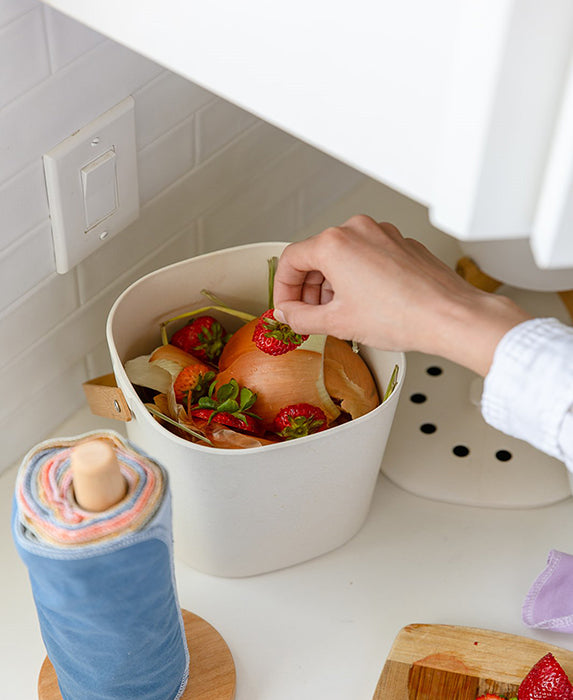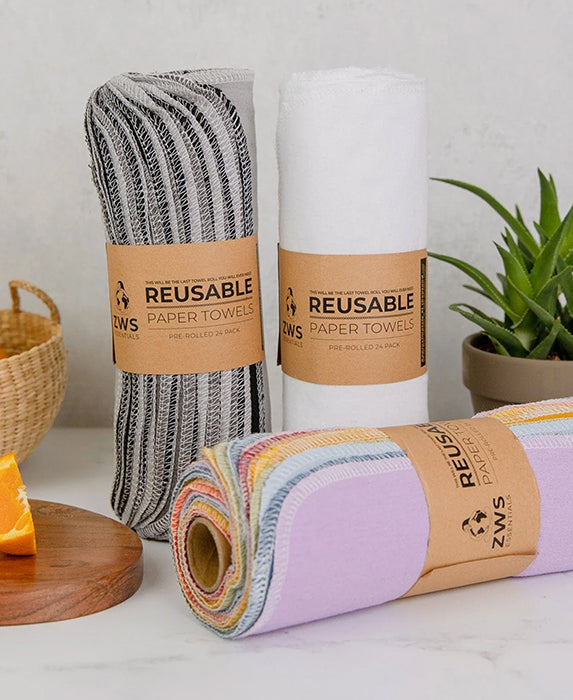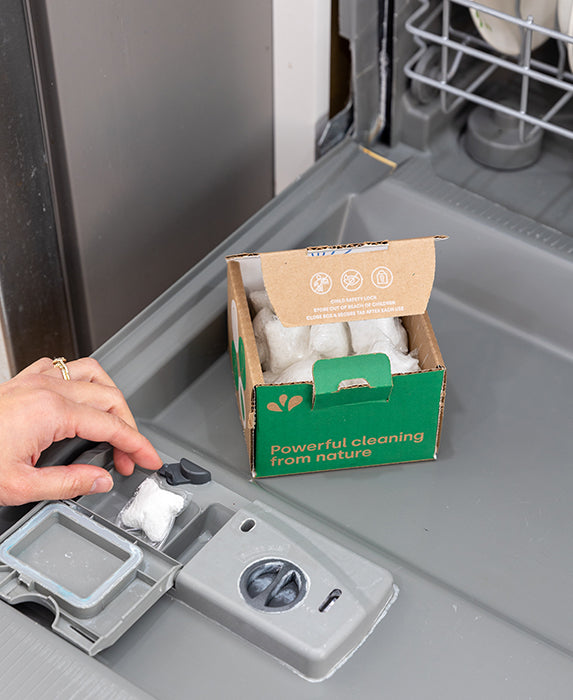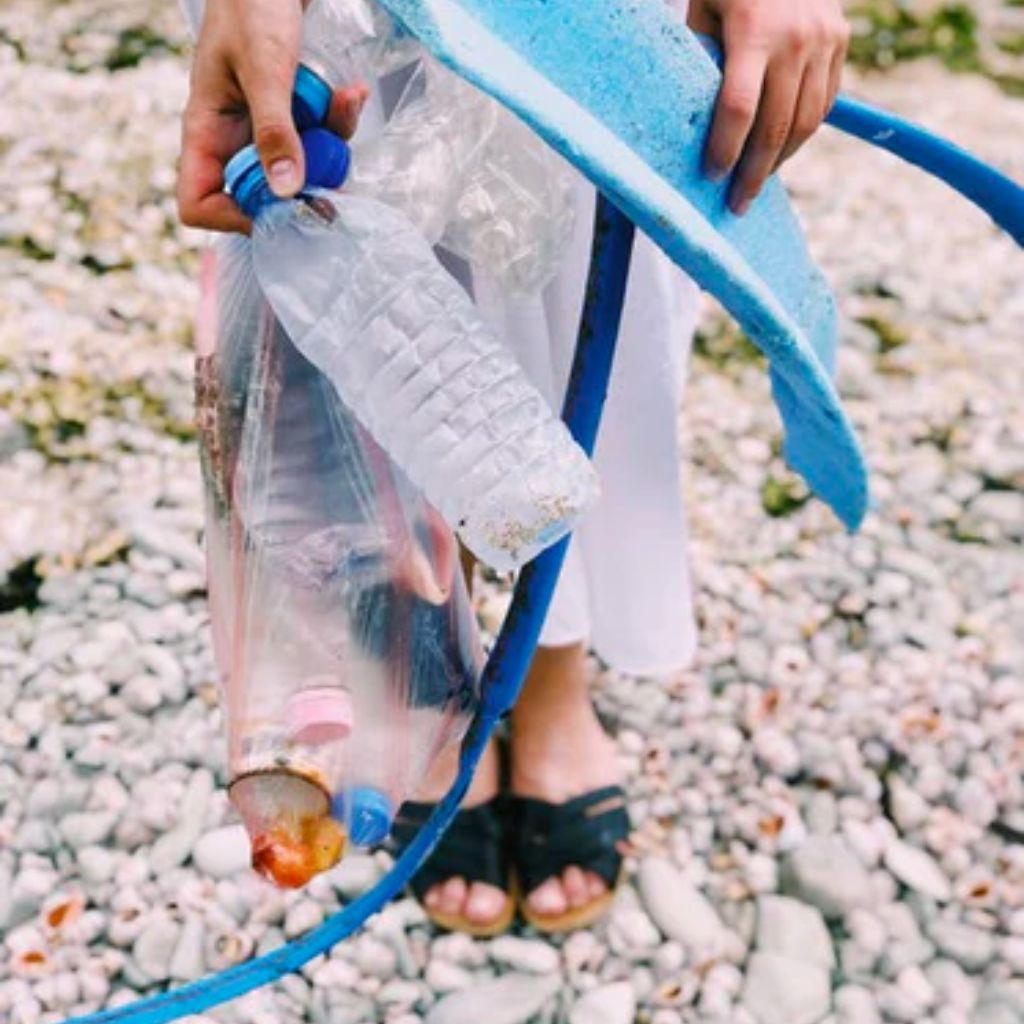This guest blog was written by an EarthHero intern, Zach, in the winter of 2019 as he navigated sustainable college living. With COVID-19, the fall semester of 2020 will likely look a little different for everyone – but we think his insights are still applicable. Join us below as Zach dives into some pro tips for making college a little more eco-friendly!
The college years are notorious for scraping by as easily and inexpensively as humanly possible. For the first time in most young adults’ lives, they are faced with living by themselves and learning how to be independent and responsible. It also marks the first time that most young adults have to be financially responsible for themselves, whether that means managing a paycheck or allowance, or navigating student loans. Because of this newfound responsibility, it is easy to understand why living sustainably might not be on the top of their priority list, but here are some easy tips and trick that can help achieve a cleaner lifestyle.
What You’ll Learn:
- How to conserve food and materials in the dorms
- How saving money and living sustainably coincide during the college years
- Other lifestyle tips that improve your life and reduce your consumption
Sustainable on Campus
Most colleges around the country require that their new students live in the dorms during their freshman year. This means that for most students, their first ever experience living outside of their parent’s house happens in the dorms. This is a scary and stressful time in many young adults’ lives, they are maturing both mentally and physically and are experiencing what might be the single biggest lifestyle change that they will ever endure. Whether you are currently a college student, a parent of a student, or were ever a college student, you probably know exactly what I mean. But this doesn’t mean that you should ignore your commitment to living sustainably. Fortunately, on-campus living is one of the easiest times in your life to live sustainably and to grow the good habits that will stay with you the rest of your adult life. Here are some of our best, and simplest methods to live sustainably living in the dorms.
Take Advantage of the Resources Around You
Living in the dorms is a unique living space where all of your neighbors are around the same age and are all experiencing a similar situation. Most young adults come into the dorms without knowing many other people, or possibly anyone at all. Additionally, dorm rooms are ridiculously small and sharing this small space with one or more people probably means that there is no space for all of the luxuries that you enjoyed when you were living with your parents. But when you think about the dorms as a community, this can easily change. Okay hold on, what exactly do I mean by the “luxuries that you enjoyed with your parents?” I mean the things that you may not have space for in your small dorm room such as having a coffee maker, owning a printer, or possibly even smaller accessories like having your own scissors or having a stapler. Luckily, the great part about the dorms is that someone else probably has what you need, and you might even make a friend while asking them. Instead of every room in a hall buying a printer and taking up space in their rooms, find the person who brought theirs from home and ask if you can use it. In the process, you might save some money on not buying a printer, or using the pricey on-campus printers, and you might have just made a friend! Need scissors for a project? Don’t pay money for a new pair or make Amazon ship you a pair from China, go knock on your neighbor’s door and borrow theirs.
Another great way to reduce your footprint by utilizing the resources around you is to take advantage of campus recycling and composting programs. I wish I could say that every college across America (or really the world) participated in recycling and composting efforts, but unfortunately, they do not. A great place to start is by having a recycling bin in your dorm room, many colleges will provide one for you but just make sure to use it! Learn about which products are recyclable and which ones are not, this seems obvious but as newly independent young adult, there is no better time in your life to start building these good habits. Next, learn about the recycling and composting programs that your college provides, and if you don’t like them, you have more power and support than you think. Be a voice of change in your school and try to improve their waste reduction for the generations to follow, as the planet wide eco-movement gains momentum, they will be forced to listen.
Don’t Waste Food
Approximately 1/3 of all food that is produced in the world ends up becoming waste. On college campuses alone, the Food Recovery Network predicts that around 22 million pounds of food are wasted each year. This is largely in part to an extremely wasteful dining hall system. The buffet style dining hall system that is common in most colleges promotes the dining hall to overestimate how much food will be needed and promotes the students to take more food than they will actually eat, both of which lead to more waste.
A study from the Journal of Hunger and Environmental Nutrition found that removing trays from the dining halls resulted in a 32% reduction of food waste and a 27% reduction in dish use. While removing trays all together from the dining halls is the best strategy to reduce waste, you can start by not taking a tray when you go to grab dinner. Also, it’s a buffet, start small and go back for seconds if you are still hungry. Finally, simply being conscious of how much food you take from the buffet will have a surprising impact on how much less food you end up wasting. Be smart and conscious when you are eating in the dining hall.
Reusable Items
Like I said, the lore of dorm room living requires very little spending and does not leave too much space for thinking about how to live the most sustainably. Fortunately, many sustainable solutions can actually be very cheap and even save you money. It is very common for college students in the dorms to want to buy plastic water bottles. Alternatively, consider investing $20-$30 in a small water filter with a tank that fits in your mini fridge. Now you can confidently drink clean, cold water from the sink while saving yourself money in the long run by not buying plastic bottles. Not to mention that you won’t be adding to the approximately 22 billion plastic water bottles that end up in the landfill or the oceans each year.
You can also get some reusable utensils and dishware to have in your room instead of using new plastic utensils or paper plates every time. EarthHero has some awesome reusable bamboo utensil sets that come with all the utensils you need and include an rPET fabric carrying case. These seemingly small decisions can help the environment significantly, and support your sustainable lifestyle. One more idea here, replace your laundry detergent with eco-friendly alternatives. Tide Pods are expensive and put nasty chemicals into the water stream; Alternatively, EarthHero has some cheap, eco-friendly, laundry detergents that don’t pollute the environment and save you money. There are almost always eco-friendly alternatives to your single use items in the dorms so take a minute to look around at your stuff and see if any of it would be replaced with cleaner, smarter alternatives.
Sustainable Off Campus
It’s year two of college and you are moving into the next chapter of your independent life, moving out of the dorms and into an apartment or a house. Suddenly you don’t have the convenience of the dining halls, you have to pay your own energy bill, and everything you need isn’t walking distance anymore. Once again, here are some more helpful tips to continuing your commitment to living sustainably.
In Your House
Last year, your dorm room was the size of your closet and you were sharing it with someone else, now you finally have some space to stretch your legs and have more stuff! But be careful what you wish for because stuff costs money and we are assuming your tight on that. Besides paying rent, the biggest expense that you will probably see in your house or apartment is the energy bill. While it is a nuisance, it is also a great way to see how much energy you are using, and to find ways to reduce your usage, saving you money and saving the planet.
For example, some ways to lower your home energy usage include closing the drapes at night and opening them on a sunny day, home heating accounts for more than 50% of a household’s energy usage. The second highest energy user in your home or apartment is your water heater. Consider if your heater needs a replacement and make sure to clean out the ventilation so it is working the most efficiently. Some great water and money saving tips are to only run your dishwasher when it is completely full. Or try turning off the shower when you are putting on soap or cleaning your hair.
Another small investment to consider for your home or apartment are smart power strips. Normally, when something is plugged into the wall outlet (a phone charger for example), it is using electricity even when it is off or nothing is plugged into it, that means you are paying for your chargers to do nothing all day. Alternatively, smart power strips know which plugs are needing power and only provide electricity where it is needed. This is not even mentioning the convenience and surge protection that power strips provide.
At the Grocery Store
Now that the dining hall isn’t next door anymore, your next big expense living off campus is buying food. Realistically, as a broke and lazy college kid, buying ramen and ordering dinner for delivery might be a big part of that. If you are fully committed to sustainability, maybe this isn’t true, and we would urge you to avoid food delivery and plastic wrapped meals if possible. But for the average student, be conscious of your food purchases and consider some of these other sustainability tips:
- Try to avoid produce that needed to be flown in to your grocery store, these have the highest carbon footprint. This typically includes foods that are not in season in your area, but still show up at the store
- Meats from industrial agriculture practices have astronomically bad environmental implications. If you don’t want to give up meat all together, look for meat from locally grown farms, go to the farmers market, or try meatless Mondays
- Bring reusable bags to the grocery store. Most grocery stores only offer plastic bags at checkout and Americans use around 100 billion of them each year. One study found that plastic bags are used for an average of 12 minutes and then spend the next 500 years decomposing in the landfill or the oceans.
- Include your roommates (if you have them)! Going to the store with your roommate(s) can mean less trips in the car and no accidental double purchases. Additionally, if you are ordering food, do a group order. This means only one car trip for all the meals and you will save some money by splitting the delivery cost.
- Lastly when it comes to food, around 1.3 billion tons of food is wasted every year around the world. Make sure to save and eat your leftovers if possible invest in a compost bin to reduce your footprint.
Other Pro Tips
Getting into these good habits in your college years is super important to promote sustainability for your whole life. While living off campus, start to get in the habit of using public transportation, even if you have a car. Emissions from transportation make up more than a quarter of all global emissions and are sometimes easy to avoid.
Another way that you might be contributing to this without realizing is by shopping online, besides EarthHero of course. Scrolling through Amazon in class is so convenient and these days your product might get home before you do. But, unless they are as environmentally conscious as we are, many things that you purchase online contribute heavily to climate change and other global issues. For example, many products are flown in from around the world contributing to emissions from transportation, online purchases often come packed in plastic or other wasteful containers, and many online companies have bad working conditions for employees or other humanitarian problems.
The very best thing that you can do as a college student (and really this is true for everyone) in order to be more sustainable is simply to be conscious about your choices and the impacts they have. Think about the small changes and purchases that you can make that feel insignificant but really will improve your carbon footprint and save you money. College is the best time in your life to practice living sustainably and grow the habits that will stay with you forever. Lastly, give your parents a call sometimes, I’m sure they will appreciate it.
Money Saving Tips
-
On campus living
- Recycling / compost already available
- Don’t waste food – don’t use a tray
- Don’t use bottled water – water purifiers hold water for you
- Borrow what you need from others in the dorm
- Reusable utensils / laundry pods
-
Off campus living
- Use a smart power strip
- Learn the bus system
- Get a meal plan
- Shop locally and sustainably – coordinate with roommates
- Compost / keep leftovers
- Watch your energy bill!
-
Other suggestions
- Meatless Mondays
- Reusable bags
- Don’t shop online – unless it’s EarthHero – or buy in bulk
- Get a big group for a food delivery order
We hope these tips sparked some ideas around how you can be more sustainable as a college student, whether you’re living in the dorms, taking classes online, or anything in between. Thanks Zach for the awesome tips, and we hope everyone has a safe fall semester!
This blog was originally published on August 6, 2020 and was most recently updated on October 27, 2022.









